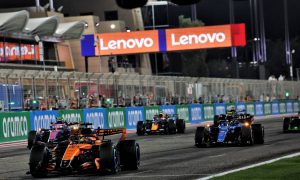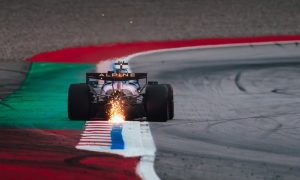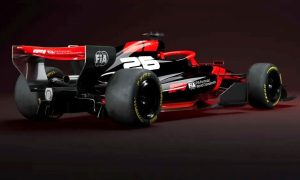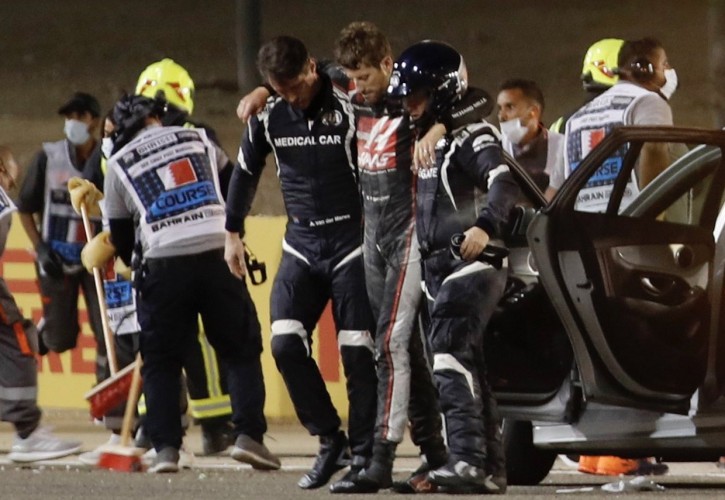
F1 medical delegate Ian Roberts says there was only a "very small window" to ensure Romain Grosjean's survival after the Frenchman's frightening crash in the Bahrain GP.
After hitting the barrier and splitting the guard rail, the survivor cell of Grosjean's Haas was surrounded in flames, its driver struggling to extricate himself from the wreck and the blaze.
Roberts, onboard the FIA medical car driven by Alan van der Merwe, was fortunately quickly on site, but admitted he would have been powerless to extract Grosjean from the inferno had the Frenchman been severely injured or unconscious.
"It looked like an oven," said Roberts who struggled to approach the flames because of the heat.
"It was red with flame and you could see him trying to get himself out and he was gradually getting himself further and further out."
"There was a fire marshal rapidly on scene and that push of the extinguisher, the powder pushed the flames back enough, once Romain was high enough, we could get him over the barrier and away.
"But it was a very small window because as soon as the extinguisher powder went forward, the flames were coming back pretty soon afterwards."
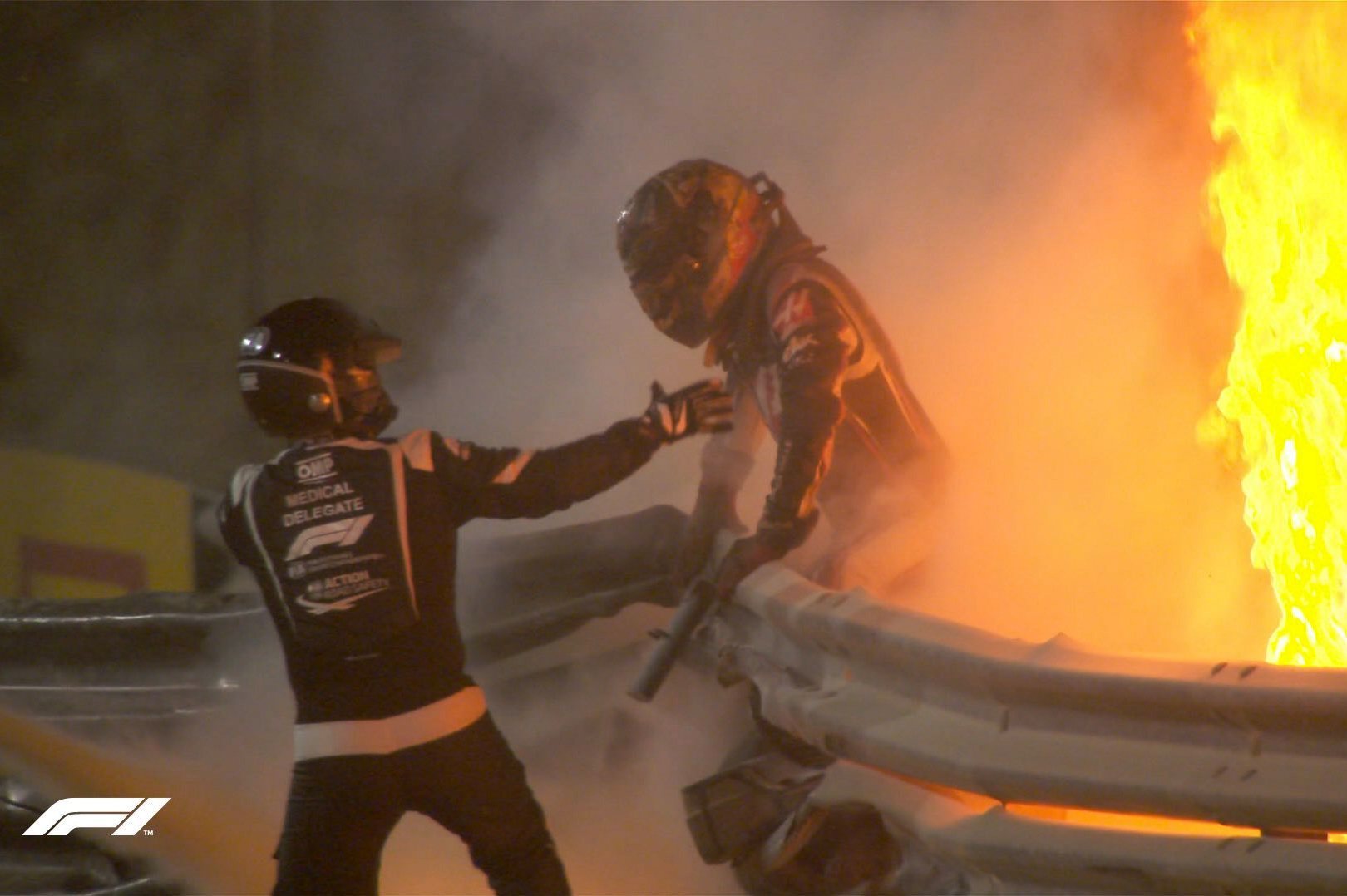
Roberts led Grosjean to the medical car and subsequently conducted a quick check
"He was obviously very shaky, and his visor was completely opaque, and in fact melted," he said. "I managed to get his helmet off to check everything else was OK.
"It was going to be flames, smoke inhalation, airway issues, and that nothing went up to his helmet, and we had a look at the helmet as well.
"But looking at him clinically we were quite happy with him from a life-threatening injury point of view, so it was about making him comfortable from the injuries we could see.
"He'd got some pain in his foot and hands, so from that point we knew it was safe enough to move him around into the car for protection and get some gel on to his burns, and then into the ambulance and to the medical centre."
Medical car driver Alan van der Merwe underscored the importance of preparing for extreme circumstances he had never previously encountered.
"I've not seen fire like this in my stint as the medical car driver, and a lot of it new and unknown territory, so we can only be as prepared as our own ideas," he said.
"We do a lot of checklists and a lot of preparation, talking about scenarios, but this was crazy.
"Honestly, to get there and to see half of the car and the other half nowhere to be seen and just a huge ball of flames so you have literally seconds, thinking on your feet, so preparation only gets you so far.
"Then it is down to instincts and quick thinking."
Keep up to date with all the F1 news via Facebook and Twitter





